Explanation of my 10 Ballon d'Or 1966
This is my ranking, my opinion on the Ballon d'Or of the year 1966. This ranking is based on the calendar year, not the season. What counts for this ranking is the player's regularity over the calendar year, the number of matches played, the ability to raise his level in big games, statistics (goals, assists, clean sheets, goals conceded, etc.) and trophies won (collective and individual).
#10 Paul Van Himst
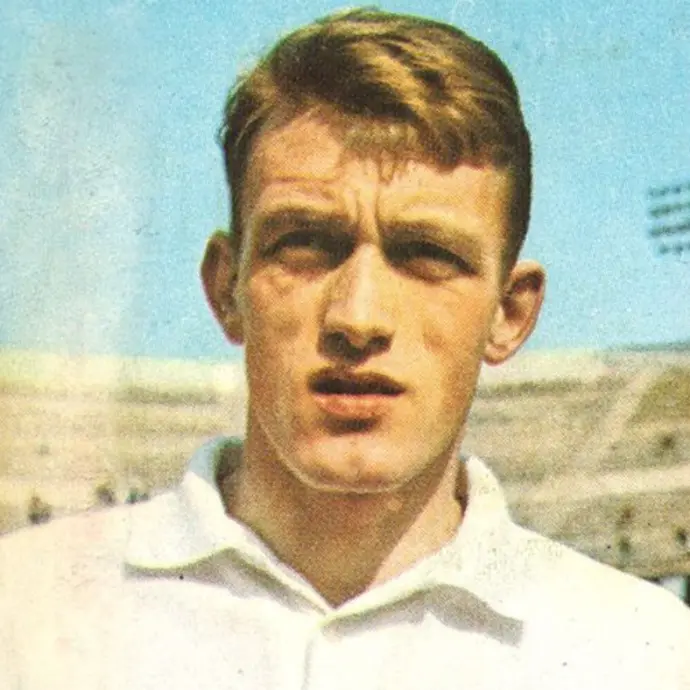
- Age : 22/23 years old
- Club : RSC Anderlecht
- Statistics : 48 games, 45 goals, / assists
- Trophies : Belgian League, Finalist Belgian Cup
- Individual Awards : Belgian League TOTY, Belgian League Golden Shoe (25 goals)
In the calendar year 1966, Paul Van Himst was the undisputed maestro of Belgian football—a forward of rare elegance, vision, and technical mastery. At just 22 years old, he was already the face of RSC Anderlecht, orchestrating attacks with a blend of grace and precision that made him one of the most admired players in Europe. That year, Van Himst led Anderlecht to the Belgian First Division title, continuing a run of domestic dominance that would define the club’s golden era. He finished the season as the league’s top scorer with 25 goals, showcasing his ability to both create and finish with equal brilliance. His performances were marked by a calm authority—he didn’t overpower opponents; he outthought them. In European competition, Van Himst helped guide Anderlecht through the European Cup, where his intelligence and poise on the ball stood out against continental opposition.
#9 Sandro Mazzola
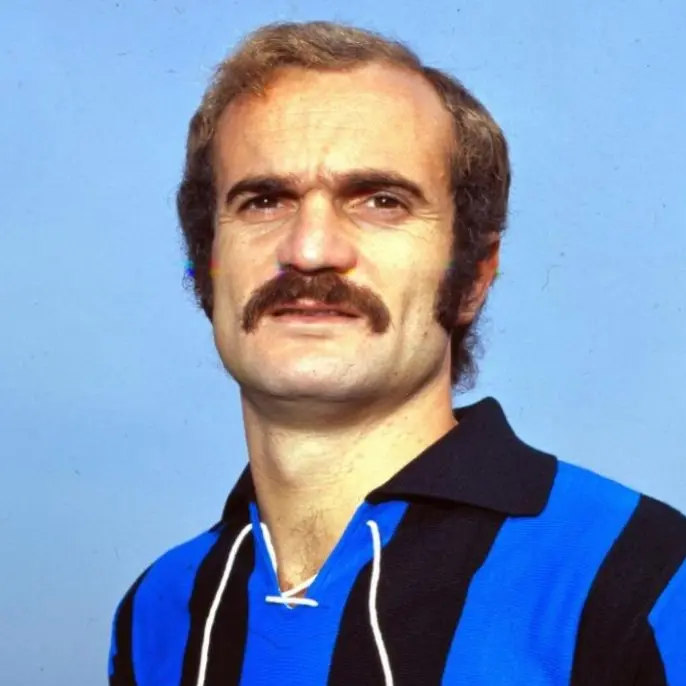
- Age : 23/24 years old
- Club : Inter Milan
- Statistics : 46 games, 28 goals, / assists
- Trophies : Serie A
- Individual Awards : Serie A TOTY
In the calendar year 1966, Sandro Mazzola was the creative heartbeat of Inter Milan, a club at the height of its powers under the legendary Helenio Herrera. As the elegant and incisive inside-forward of La Grande Inter, Mazzola combined tactical intelligence with technical brilliance, orchestrating attacks with a blend of vision, pace, and clinical finishing that made him one of Europe’s most complete players. That year, Mazzola helped Inter secure the Serie A title, their third Scudetto in four seasons, contributing 17 goals in 30 league appearances. His ability to drift between midfield and attack, link play, and strike from distance made him indispensable in Herrera’s counter-attacking system. Mazzola represented Italy at the 1966 FIFA World Cup in England. He played all three group-stage matches, scoring Italy’s only goal of the tournament in a 2–0 win over Chile. Despite the team’s shocking early exit after a loss to North Korea, Mazzola’s individual quality shone through in a squad struggling to find cohesion.
#8 Alberto Spencer
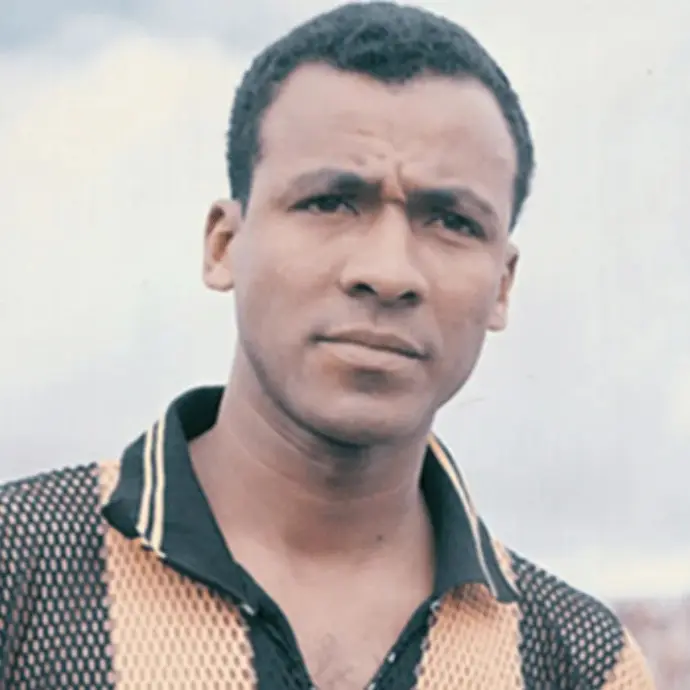
- Age : 28 years old
- Club : CA Peñarol
- Statistics : 47 games, 30 goals, / assists
- Trophies : Copa Libertadores, Intercontinental Cup, Uruguayan League Vice-Champion
- Individual Awards : Copa Libertadores TOTY, Intercontinental Cup TOTT
In the calendar year 1966, Alberto Spencer stood as the talismanic force behind Peñarol’s continental dominance, a striker whose blend of elegance, power, and instinct made him one of South America’s most feared forwards. Known as Cabeza Mágica for his aerial prowess, Spencer led Peñarol to their third Copa Libertadores title, scoring in both legs of the final against River Plate and delivering a decisive goal in the dramatic playoff that sealed the championship. His ability to rise in clutch moments, ghost past defenders, and finish with surgical precision elevated him to legendary status in Uruguay and his native Ecuador. Later that year, Spencer faced Real Madrid in the Intercontinental Cup, scoring twice in the first leg and once in the second, as Peñarol triumphed 4–2 on aggregate. His hat-trick across the two matches showcased not just his scoring touch but his capacity to dominate on the global stage.
#7 Bobby Moore
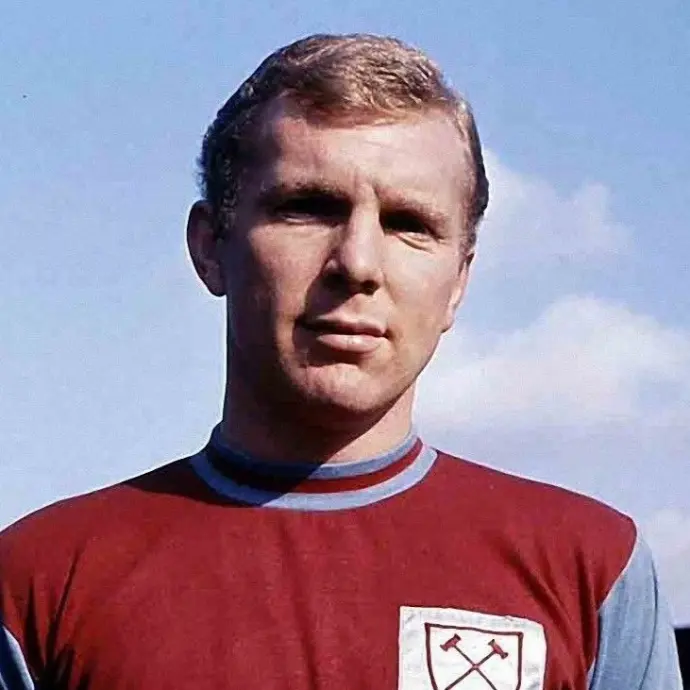
- Age : 24/25 years old
- Club : West Ham FC
- Statistics : 66 games, 5 goals, 5 assists
- Trophies : World Cup, British Home Championship, Finalist English League Cup
- Individual Awards : World Cup TOTT
In the calendar year 1966, Bobby Moore became the embodiment of English footballing excellence—calm, composed, and utterly commanding. As captain of both West Ham United and the England national team, Moore led with quiet authority and unmatched intelligence, culminating in one of the most iconic moments in football history: lifting the FIFA World Cup at Wembley Stadium. That summer, Moore marshaled England’s defense through six matches of the 1966 World Cup, playing every minute with poise and precision. His reading of the game, impeccable timing, and ability to launch attacks from the back were instrumental in England’s triumph. In the final against West Germany, it was Moore’s perfectly weighted pass to Geoff Hurst that set up the opening goal—an emblem of his vision and leadership. England won 4–2 after extra time, and Moore, hoisting the Jules Rimet Trophy, became a national hero. At club level, Moore remained the cornerstone of West Ham United, anchoring the defense with his trademark elegance. Though West Ham finished mid-table in the First Division, Moore’s performances were consistently world-class. His leadership extended beyond the pitch—he was a role model in every sense, earning the BBC Sports Personality of the Year award in 1966, the first footballer ever to receive the honor.
#6 Johan Cruyff
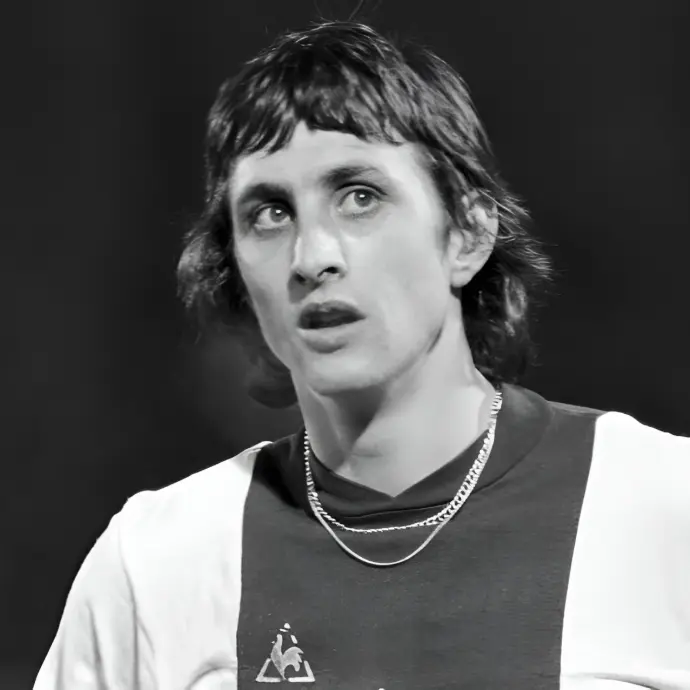
- Age : 18/19 years old
- Club : Ajax
- Statistics : 38 games, 41 goals, 15 assists
- Trophies : Eredivisie
- Individual Awards : Eredivisie TOTY
In the calendar year 1966, Johan Cruyff emerged as the most electrifying young talent in European football—a player whose intelligence, balance, and creativity were already reshaping the way the game was played. At just 19 years old, Cruyff was the beating heart of Ajax Amsterdam, orchestrating attacks with a maturity far beyond his years and dazzling crowds with his effortless control and spatial awareness. That year, Cruyff led Ajax to the Eredivisie title, scoring 25 goals in 23 league matches, a staggering return for a player who operated as both a forward and a deep-lying playmaker. His performances were a revelation: he was not just scoring, but dictating the rhythm of matches, drifting between lines, and creating space where none seemed to exist. It was the season that marked his transformation from promising youth to generational star. Internationally, 1966 was also the year Cruyff made his debut for the Netherlands national team, scoring in his first match against Hungary on September 7. Just two months later, he became the first Dutch player ever to be sent off in an international match, a moment that hinted at the rebellious streak that would define his career both on and off the pitch.
#5 Ferenc Bene
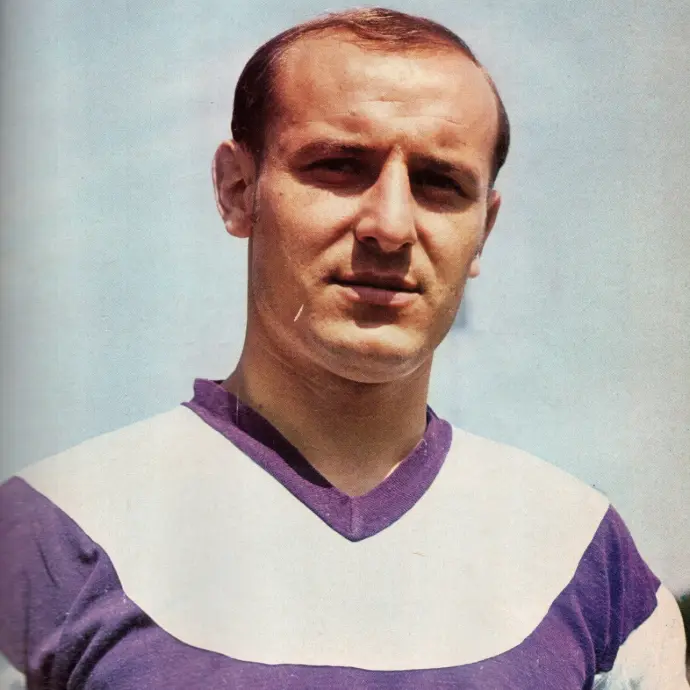
- Age : 21 years old
- Club : Ujpest FC
- Statistics : 42 games, 36 goals, / assists
- Trophies : /
- Individual Awards : /
In the calendar year 1966, Ferenc Bene stood as the sharpest blade in Hungary’s attacking arsenal—a striker of instinct, intelligence, and unerring precision. At just 21 years old, Bene was already a seasoned international and the undisputed star of Újpesti Dózsa, where his goal-scoring feats had made him a household name across Eastern Europe. That year, Bene continued his prolific form at club level, helping Újpest remain a dominant force in the Hungarian Nemzeti Bajnokság I. He also shone in the Inter-Cities Fairs Cup, scoring 3 goals in 6 matches, including decisive strikes against 1. FC Köln and Leeds United. His ability to find space, time his runs, and finish with either foot made him a nightmare for defenders and a dream for playmakers. But it was on the global stage that Bene truly announced himself. At the 1966 FIFA World Cup in England, he was the spearhead of a resurgent Hungarian national team. In the group stage, Bene scored in all three matches—against Portugal, Brazil, and Bulgaria—before adding a fourth goal in the quarterfinal against the Soviet Union. Though Hungary fell short of the semifinals, Bene’s four goals in four matches made him one of the tournament’s standout performers. His World Cup campaign was a continuation of the brilliance he had shown two years earlier at the 1964 Tokyo Olympics, where he scored 12 goals and led Hungary to gold. In 1966, he was no longer a prodigy—he was a proven force, a striker whose name belonged alongside the greats of his generation.
#4 Flórián Albert
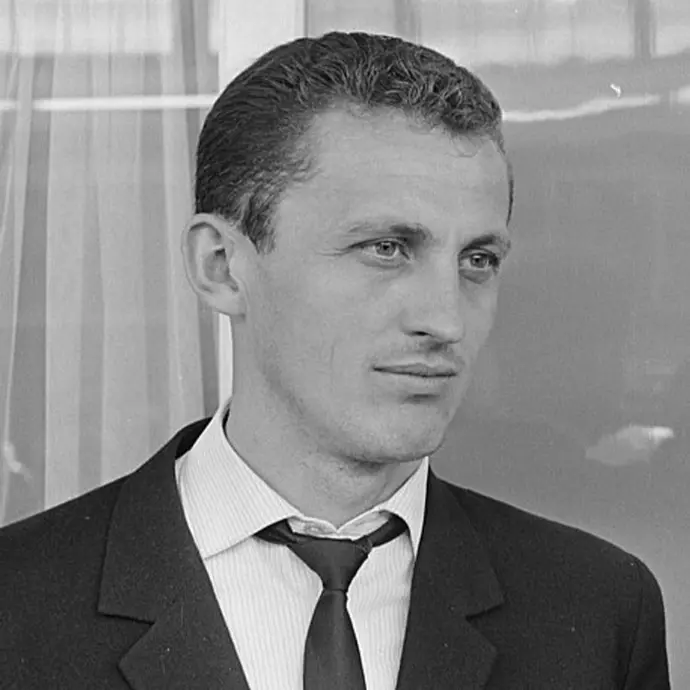
- Age : 24/25 years old
- Club : Ferencváros
- Statistics : 46 games, 41 goals, 13 assists
- Trophies : Hungarian League Vice-Champion, Finalist Hungarian Cup
- Individual Awards : Hungarian POTY, World Cup TOTT, Champions League TOTY, Champions League Golden Shoe (7 goals), Hungarian League TOTY
In the calendar year 1966, Flórián Albert reaffirmed his status as one of Europe’s most elegant and cerebral footballers—a player whose grace, vision, and technical mastery made him the spiritual heir to Hungary’s golden generation. As the talisman of Ferencváros and the creative soul of the Hungarian national team, Albert played with a poise that turned matches into performances and opponents into admirers. At club level, Albert continued to shine for Ferencváros, where he had already become a legend. Though the team did not repeat its 1965 Inter-Cities Fairs Cup triumph, Albert remained its most influential figure, orchestrating attacks with his trademark fluidity and scoring with effortless precision. His domestic form was as consistent as ever, and his leadership on the pitch was unquestioned. But it was during the 1966 FIFA World Cup in England that Albert captivated the world. In a group that included defending champions Brazil, Albert delivered one of the tournament’s most memorable performances. On July 15 at Goodison Park, he was the architect of Hungary’s stunning 3–1 victory over Brazil, a match in which he was involved in all three goals. His dribbling, vision, and ability to glide past defenders left the Brazilian midfield in disarray and the crowd in awe. Even Pelé, watching from the sidelines due to injury, was said to be astonished by Albert’s brilliance. Though Hungary’s journey ended in the quarterfinals with a narrow defeat to the Soviet Union, Albert’s performances earned him global acclaim. He was widely regarded as one of the finest players of the tournament, and his reputation as the most elegant forward in Europe only grew.
#3 Franz Beckenbauer
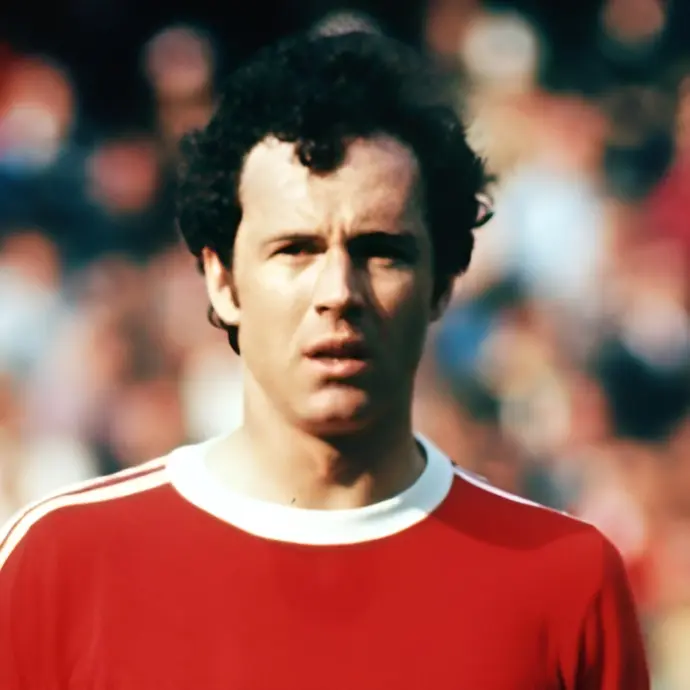
- Age : 21/22 years old
- Club : Bayern Munich
- Statistics : 53 games, 9 goals, / assists
- Trophies : Finalist World Cup, German Cup
- Individual Awards : German POTY, World Cup YOTT, World Cup TOTT
In the calendar year 1966, Franz Beckenbauer emerged as the most refined and revolutionary young footballer in Europe—a player whose elegance, tactical intelligence, and versatility were already reshaping the role of the modern defender. At just 20 years old, Beckenbauer was the cerebral core of Bayern Munich and a rising star in the West German national team, destined to become one of the game’s great architects. That year, Beckenbauer helped Bayern Munich win the DFB-Pokal (German Cup), their first major domestic trophy since joining the Bundesliga. His ability to glide forward, dictate tempo, and read the game with surgical precision made him a unique presence on the pitch. But it was at the 1966 FIFA World Cup in England that Beckenbauer truly announced himself to the world. Making his international tournament debut, he played every minute of West Germany’s campaign and scored four goals, including a stunning strike against Switzerland and a crucial goal in the semifinal against the Soviet Union. In the final at Wembley, he was tasked with marking England’s Bobby Charlton—a duel that symbolized the clash of two footballing minds. Though West Germany fell 4–2 after extra time, Beckenbauer’s performances earned him global acclaim and a place in the tournament’s All-Star Team.
#2 Eusébio
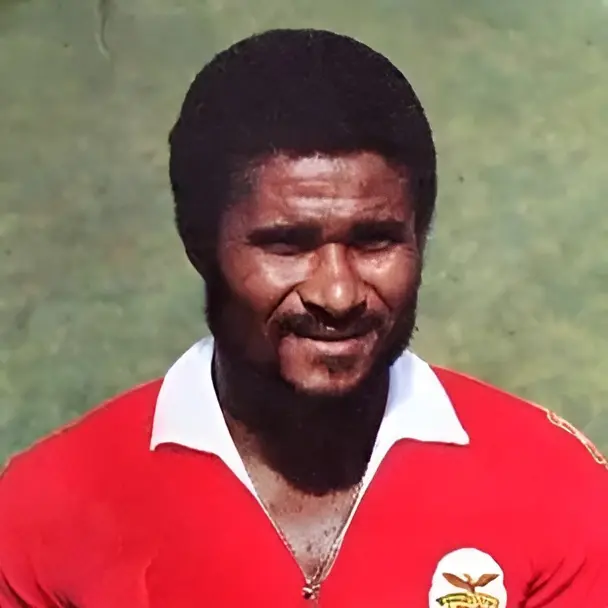
- Age : 23/24 years old
- Club : Benfica Lisbon
- Statistics : 43 games, 45 goals, / assists
- Trophies : Portuguese League Vice-Champion, Ribeiro dos Reis Cup
- Individual Awards : World Cup TOTT, World Cup Golden Shoe (9 goals), Portuguese League TOTY, Portuguese League Golden Shoe (26 goals)
In the calendar year 1966, Eusébio da Silva Ferreira transcended the boundaries of club and country to become a global icon. Already revered in Portugal as the talisman of Benfica, Eusébio used the grandest stage of all—the FIFA World Cup in England—to etch his name into footballing immortality. With a blend of explosive pace, thunderous shooting, and unshakable composure, he captivated the world and confirmed his place among the game’s all-time greats. That summer, Eusébio led Portugal to a historic third-place finish in their first-ever World Cup appearance. He was the tournament’s top scorer with 9 goals, including a legendary four-goal comeback against North Korea in the quarterfinals, turning a 0–3 deficit into a 5–3 triumph. He also scored twice against Brazil in the group stage and added goals in the semifinal and third-place match, delivering brilliance with every touch. His performances earned him the Bronze Ball and the adoration of fans across the globe2. At club level, Eusébio remained the driving force behind Benfica’s domestic dominance. In the European Cup, he added 7 goals in 5 matches, including strikes against Levski Sofia and Manchester United. Though Benfica fell in the quarterfinals, Eusébio’s individual brilliance never waned.
Winner : Bobby Charlton
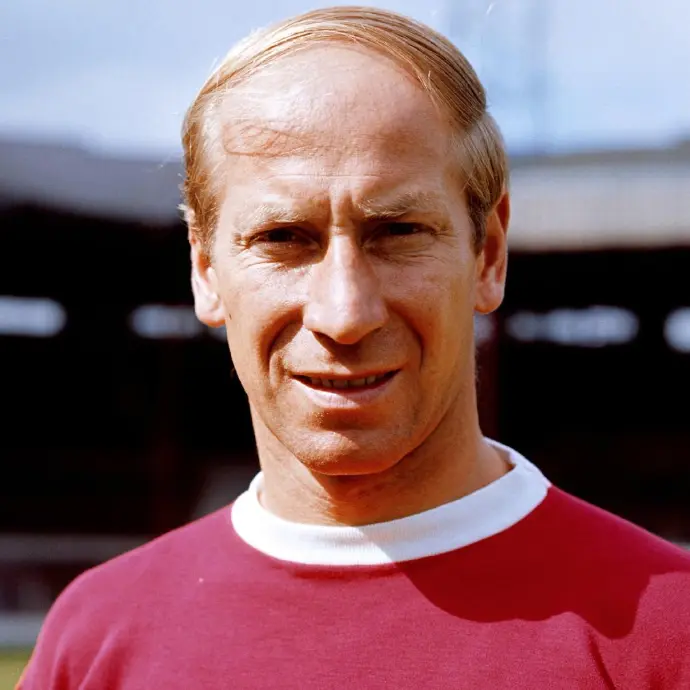
- Age : 28/29 years old
- Club : Manchester United
- Statistics : 66 games, 19 goals, / assists
- Trophies : World Cup, British Home Championship
- Individual Awards : World Cup POTT, World Cup TOTT, Premier League POTY, Premier League TOTY
In the calendar year 1966, Sir Bobby Charlton rose to the summit of world football, combining grace, power, and leadership in a year that would define both his legacy and the soul of English football. As the midfield general of Manchester United and the beating heart of the England national team, Charlton played with a rare blend of humility and brilliance, culminating in a triumph that would echo through generations. That summer, Charlton led England to its first and only FIFA World Cup title, playing every minute of the tournament with poise and purpose. He scored three crucial goals, including a sublime brace in the semifinal against Portugal, where his long-range strikes sealed a 2–1 victory and sent England to the final at Wembley. In the final against West Germany, Charlton’s tactical discipline and control of the midfield helped England prevail 4–2 after extra time. His performances earned him a place in the FIFA World Cup All-Star Team and the Golden Ball as the tournament’s best player. At club level, Charlton was equally influential. During the 1966 year, he made 66 appearances and scored 19 goals, helping the club finish fourth in the First Division and reach the semifinals of the European Cup. His leadership and consistency were recognized with the FWA Footballer of the Year award, and his performances in Europe—including a decisive goal against Eusébio’s Benfica—cemented his reputation as a player for the biggest moments. Capping off a year of personal and national glory, Charlton was awarded the Ballon d’Or, edging out Eusébio by a single vote to be named Europe’s best footballer. It was a fitting tribute to a man who had not only conquered the game but had done so with dignity, resilience, and an unwavering commitment to excellence.